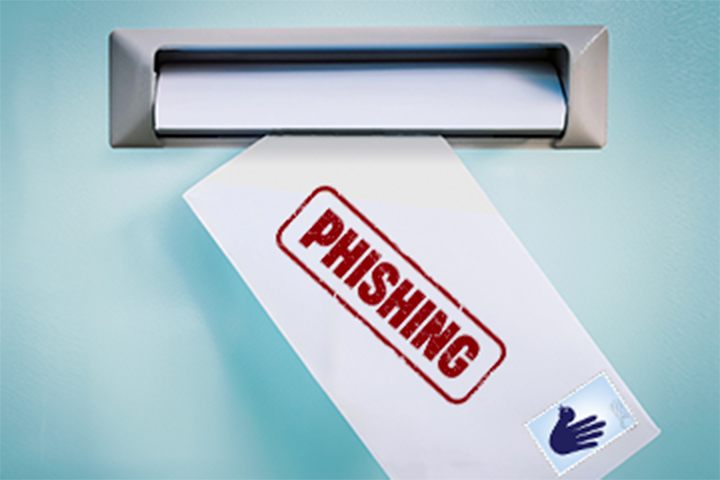Online dating scams: tips to protect yourself

Keytrade Bank
keytradebank.be
March 12, 2024
(updated March 19, 2024)
3 minutes to read
The love of your life? You used to find them sitting next to you in a lecture hall, in the aisles of a supermarket or at Uncle Rick’s wedding party. Today you may still find them there, but increasingly we are also searching for our perfect M/F/X online. From Tinder to local apps for your country: the internet is full of platforms to help you (try to) find true love. This can be very useful/frustrating *delete as applicable*, especially in an age where at times we see more screens than faces. Like every gold rush, the search for love attracts people with less than noble intentions. They are seeking your personal data, your money or worse. Fraudsters are also becoming increasingly sophisticated in the ways they lure unsuspecting victims into their trap. Below we look at some of the common tricks used by fraudsters. We also suggest some practical tips to protect both your heart and your wallet.
1. Good-looking, intelligent, pleasant and completely fake
One of the most common methods used by fraudsters is creating a fake profile – also known as catfishing. They use someone else's photos and personal information to create an attractive but fictional character. They play on your emotions with the aim of gaining your trust and ultimately of getting money and/or personal data out of you. The famous Tinder Swindler is a perfect example of this technique. Not only does the profile of your potential date look attractive, he or she often also has an impressive career and/or some good qualifications on the wall behind them. Sooner or later, the conversation turns to money, with the fraudster often opening up his impressive portfolio to you and letting you drool over his or her wealth. He earned all that money from a cryptocurrency or other "investment". And of course, he recommends that you invest money in it as well.
There are 101 variations on this trick. For example, fraudsters may assume the profile of a member of the military or military doctor stationed abroad. Sooner or later, they will ask you to help them out financially (the payment network is down here) and transfer them the money for a flight home or some other expense. The fraudster may also ask you if he/she can send you something valuable, until he/she returns from their posting. However, you will of course have to transfer money before sending or receiving it. Another horrible not-so-golden oldie: the fraudster swears that he or she has to marry in order to inherit millions of dollars of gold left by their father or an uncle. Marriage is supposedly a condition in the father's or uncle's will... you can already guess the next step. Note: a fake profile won't always be flashy or striking. Dull-looking profiles can be just as fake. Sooner or later, you will receive something like a request to transfer money for medical treatment of a sick family member, for a gift certificate, and so on.
Download our checklist and read our practical advice on how to combat fraudsters
2. Exposing yourself
Blackmail is another technique. It often starts with a proposal to move your conversations to a more personal dimension, like video calls. However, at the critical moment, your potential date's webcam suddenly stops working. Despite this, with a mixture of flattery and charm, this person is able to convince you to perform intimate acts in front of the camera. These moments of vulnerability are recorded without your knowledge. After this exchange, the man or woman of your dreams mutates into a blackmailer and threatens to share the compromising images with your friends, family or even your colleagues, unless you agree to make a payment. This is the start of a cycle of blackmail where you may be asked several times to transfer money under the threat of disclosure. The pressure and the risk increase as the fraudster drives you into a corner with the threat of damage to your reputation and relationships.

3. The trap of fraudulent dating sites
Fraudulent dating sites promise legitimate encounters and relationships, but their reality is something else. Often, the site has very few real dating profiles, and is instead full to the brim with scammers looking for their next victim. Users are encouraged to create a profile in exchange for a free premium membership or some other exclusive benefit, but these sites are far more interested in your personal and financial details than your love life.
If during registration you are asked for sensitive information such as financial data, or answers to security questions such as your mother’s name or the name of your first school, your alarm bells need to start ringing. Also beware of a sudden burst of interest shortly after creating your profile. If your profile has minimal information, without any photos, clear preferences, or descriptions, but you are overwhelmed with messages, then you are likely dealing with a dating site that facilitates scams.
4. False security: verification fraud
In this form of fraud, you will receive an email, text message, WhatsApp or other message asking you to verify your account. The message may claim that your dating app is updating its data and asks you to verify your account. In other forms of this fraud, an online match may ask you to verify your account before you communicate further. In these examples, the fraudster encourages you to click on a link to verify your account. As soon as you click, you will be asked for personal data.
Here is another variant. The conversation with your potential date goes in the right direction, there is a mutual click and then of course the question arises: do you want to meet? The man or woman on the other side agrees, but says he or she has had some nasty experiences in the past. Therefore, he or she asks you to fill in a Safe Dating ID or other fake certificate so that you can be verified as someone who is genuine and has good intentions. Of course, you will then be taken to a site where you have to enter your personal details and pay a small fee for the "certificate" (which means that you also share your card details immediately).
What are the red flags?
- Fraudsters try to move you off the dating app or site quickly, to somewhere that messages are not monitored. They might use excuses like “My membership is about to expire”, “I don't like logging in here every day” or “It’s easier to chat on WhatsApp than here”.
- The conversation quickly turns romantic. You are bombarded with compliments, the fraudster claims to have fallen in love with you or to feel a special bond.
- Fraudsters ask a lot of questions. The more they know about you, the more easily they can manipulate you.
- Their story is inconsistent. When someone tells lies, it can be easy for them to forget what they said previously, especially because fraudsters are often working on several different victims at the same time.
- The profile photo looks like a model. If a profile photo looks too good to be true, it’s easy to check if it’s genuine. A reverse photo search will show whether a profile photo has been used anywhere on the internet (although you can never be quite sure with AI).
- They do not have any digital footprint. Although some people don't use social media and try to minimise how much of their personal information is on the internet, you might be suspicious if you can't find any trace of your potential date online.
- They use borrowed text. Fraudsters often don't make the effort to write their own profile text or messages, but instead copy it from other websites or dating profiles.
- They won't video call you or meet you in person, and they’ll come up with new excuses every time. The obvious reason is that they don't look anything like the person on their profile picture.
- Their lives sound like a soap opera, including complicated stories about illness, family tragedies or serious accidents that are seeking sympathy.
- They live a long way away, work on a ship, drilling platform or shipyard abroad. Fraudsters try to maintain long-distance relationships because they then have an excuse for not meeting their target.
- They ask you for money. Every manipulation – even if they take weeks or even months – ends up with a request for money.
Victim of fraud?
Did you provide your Keytrade Bank account details on a suspicious website? Have you noticed a suspicious payment? Call us 24/7 on + 32 2 679 90 00 or go to https://www.keytradebank.be/en/fraud


